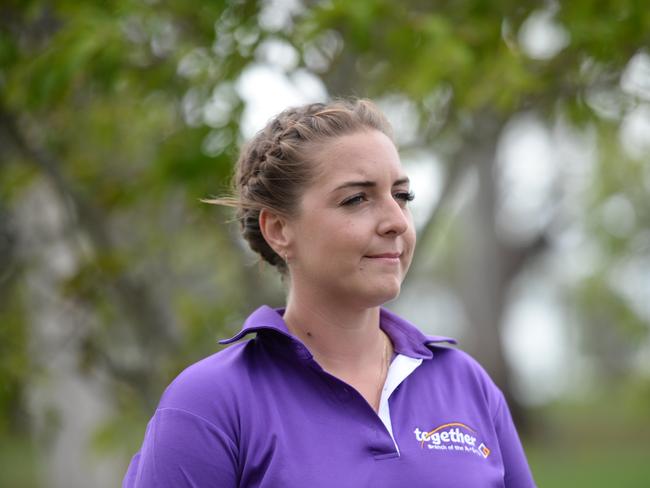Ashleigh Saunders works for the public service union
“We’re fed the narrative that workers need to suffer in order to advance the economy, that we need to be exploited.”

Rockhampton
Don't miss out on the headlines from Rockhampton. Followed categories will be added to My News.
Ashleigh Saunders developed her passion for collective action straight out of school, working in the retail sector.
“Retail staff are some of the most underpaid and undervalued works in the country,” she said.
“I became the local workplace union representative to try and ensure we were treated fairly.”
When a position working for Together, the public service union became available, Ms Saunders jumped at the chance and she hasn’t looked back.
Eleven years later, she still looked forward to welcoming Central Queensland locals to this year’s Labour Day Family Fun Day.
“Labour Day celebrations hark back to the introduction of the eight-hour working week,” she said.
“Eight hours at work, eight hours sleep and eight hours play… it was all about achieving a work/life balance.”
Ms Saunders said modern technologies threatened to cut back into our private time.
“With everyone carrying a mobile phone and a laptop, we’re making ourselves more or less constantly available,” she said.
“It’s time to reframe our thinking when it comes to our contractual rights and obligations.”
Ms Saunders said she was raised in a working class family home where the premise of a “fair go” for all Australians was openly discussed.
And even though unionism hasn’t been compulsory for decades, she still believes it is relevant to all Australians.
“I think people are becoming more individualised; they only think about “what’s in it for me”,” she said.
“We’re fed the narrative that workers need to suffer in order to advance the economy, that we need to be exploited.
“Truth is, we are the economy… if the workers downed tools tomorrow, the entire economy would grind to a halt.”
In recent times, representatives of various unions have rallied in Central Queensland against casualisation in the mining sector.
“I’ve yet to meet a genuine working class person who wants to accept a casual contract,” Ms Saunders said.
“When they can’t get a home loan, can’t afford to get sick, workers don’t have a chance to advance themselves or look after their family under casualisation.”
Ms Saunders said future challenges for union organisers included focusing on women’s rights at work.
“Post-Covid recovery plans have had a strong impact on the economy,” she said.
“But most of them fail to acknowledge women and women-based industry.”


